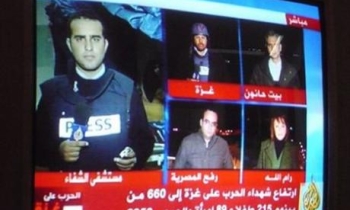Gorakhpur, July 10 (ANI): Indian and Nepali journalists have decided to launch a joint campaign against the evil practice of women trafficking.
Attending a "Media Sensitisation" workshop on the problem organised by the United Nations Development Fund for Women (UNIFEM) in Gorakhpur, the journalists accepted that the trafficking of women was a horrendous practice quite rampant in South Asia.
Unofficially, it has been estimated that over 700,000 South Asian women are part of this nefarious business and the UNIFEM believes that the media can highlight the concern of the victims and sow seeds of change.
"In my opinion, this particular issue cannot be sorted out by various stakeholders. Instead, a single powerful voice like the media, which is everywhere, can be helpful. We organized this seminar to correct the perception of the people that the media is insensitive towards such an issue," said Archana Tamang, member of the UNIFEM, South Asia region.
Women trafficking can be disguised as migration or commercial sex. But what starts as a journey to some unknown destination ends with drastic situation and malpractice like prostitution.
The co-organisers of the seminar, Seva, a Nepal based NGO, are working towards stopping this ill-practice. Besides NGOs, the government is also running programmes through education and thus create a wave of mass awareness.
"The media persons from Nepal and India are committed to tackle the trafficking issue. Media can play a pivotal role in society by highlighting this issue and then pressurising the government by putting it in right manner. Through such means the government can be forced to implement a law soon in this regard. The co-operation between Nepal and Indian journalists is commendable. The Nepalese media received positive response from their Indian counterparts to stop this practice. A common declaration was made to form a consent among journalists here, which can be later used as guideline. Some guidelines have been formed, which we will discuss further. This is just the beginning," said Mukul Tripathi, a local journalist.
"We believe that 'prevention is better than cure'. We are encouraging the people in villages to educate their progenies and enroll their kids in education programmes. The government is also running few programmes like National Women Employment Guarantee Scheme, Bachpan, Education For All etc to create awareness among the communities in the rural and remote areas," said Tamang.
Pointing out that trafficking is deeply related to deprivation, a skit was staged to show that the people forced to accept unknown jobs due to lack of options. The skit also related how solidarity can fight against trafficking in Nepal and neighbouring countries, indeed a hot destination for traffickers.









